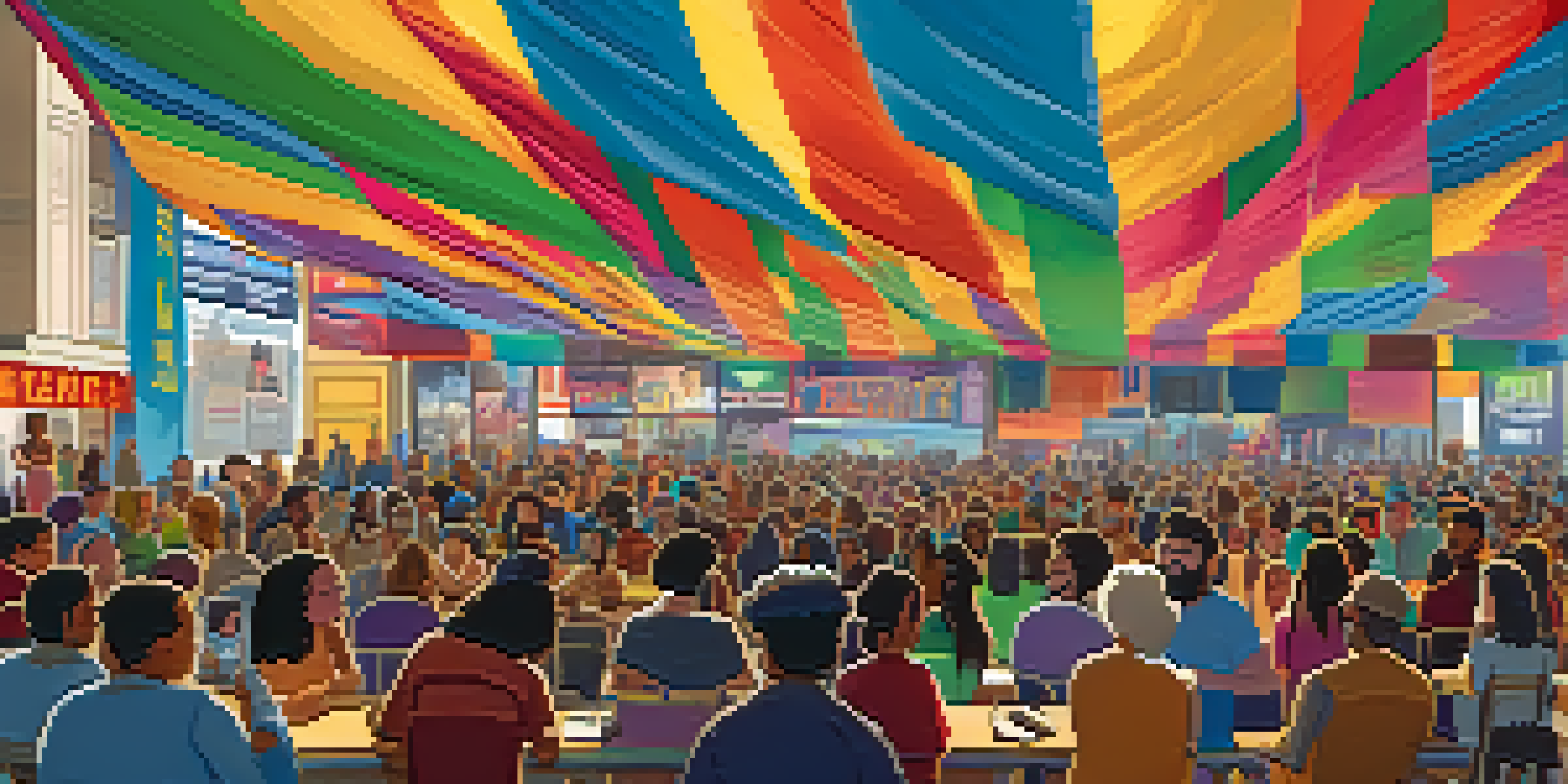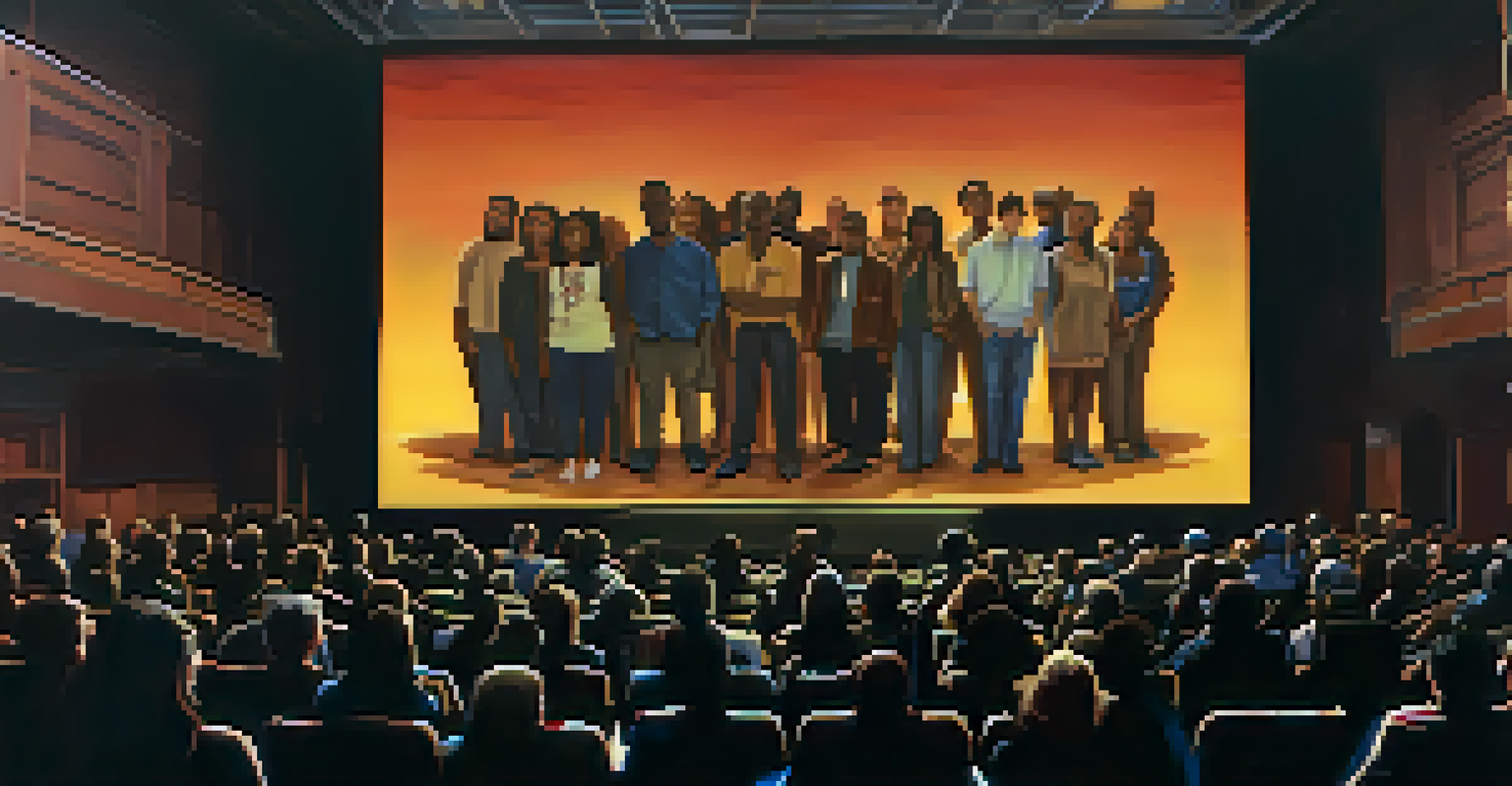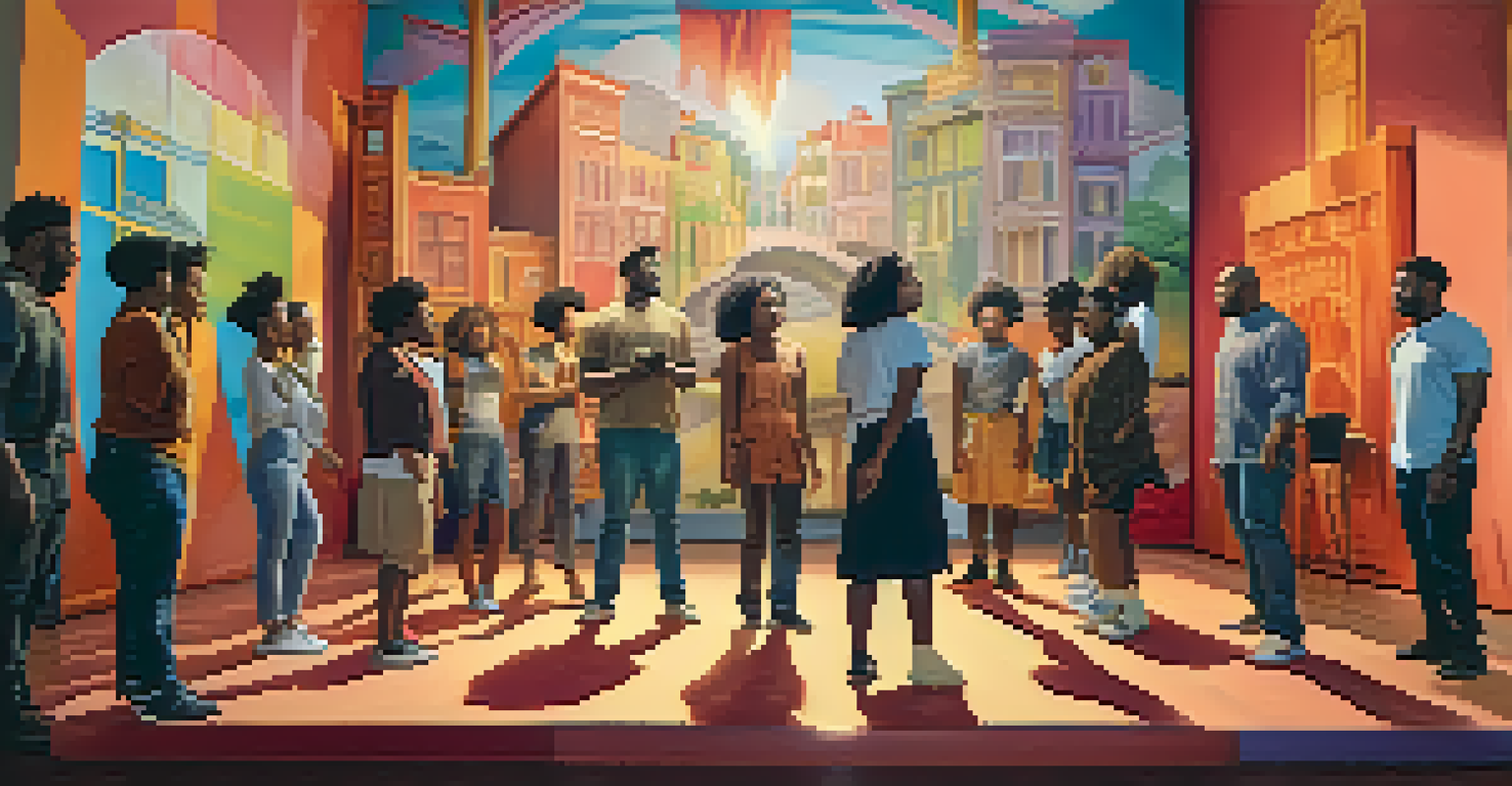Films as Catalysts for Social Justice Movements

The Role of Film in Shaping Public Perception
Films serve as a mirror to society, reflecting its struggles and triumphs. They have the power to shape public perception by presenting stories that resonate deeply with audiences. When a film tackles social justice issues, it often sparks conversations that might not have occurred otherwise, influencing how people view these problems in real life.
Cinema is a matter of what's in the frame and what's out of it.
For example, the movie '12 Years a Slave' brought the horrors of slavery to the forefront of popular culture, encouraging discussions about racial injustice. By engaging viewers’ emotions, films can challenge stereotypes and broaden understanding, making complex issues more relatable and easier to grasp.
Moreover, documentaries like 'The Act of Killing' confront viewers with the brutal realities of historical injustices. This level of engagement can motivate audiences to take action, whether through activism, donations, or simply a commitment to educate themselves and others.
Films as Tools for Activism and Awareness
Movies have long been used as tools for activism, raising awareness about pressing social issues. They can amplify marginalized voices and tell stories that might otherwise go unheard. Documentaries, in particular, shine a light on injustices, urging audiences to reflect on their societal responsibilities.

Take 'Won't You Be My Neighbor?' for instance, which highlights Fred Rogers’ message of kindness and acceptance. This film spurred conversations about empathy and mental health, demonstrating how cinema can influence societal values. When viewers connect with a film's message, they often feel inspired to advocate for change.
Films Reflect and Shape Society
Movies act as mirrors to society, influencing public perception and sparking important conversations about social issues.
Furthermore, films like 'Selma' not only recount historical events but also serve as a call to action for contemporary viewers. By illustrating the struggles of past movements, they remind us of our ongoing fight for justice, encouraging a new generation to pick up the torch.
The Impact of Representation in Film
Representation in film is crucial for promoting social justice, as it allows diverse voices to share their stories. When marginalized groups see themselves reflected on screen, it fosters a sense of belonging and validation. This representation can challenge societal norms and open the door to broader discussions about equity and inclusion.
The power of a story is that it can change the way we see the world.
Films like 'Black Panther' not only celebrate Black culture but also address issues of identity and empowerment. By showcasing strong, multifaceted characters, these films inspire viewers to embrace their own identities and advocate for their communities. The positive portrayal of underrepresented groups can help dismantle stereotypes and encourage empathy.
Moreover, films that focus on the LGBTQ+ community, such as 'Moonlight,' highlight the struggles and triumphs of individuals often sidelined in mainstream media. These narratives contribute to a richer understanding of humanity and the diverse experiences that shape our world.
The Emotional Power of Storytelling in Film
Storytelling is at the heart of every impactful film, and its emotional power can drive social change. When audiences connect with a character's journey, they become more invested in the issues presented. This emotional engagement can motivate individuals to take action, whether through advocacy or personal reflection.
For instance, films like 'The Pursuit of Happyness' underscore themes of resilience and determination, encouraging viewers to confront their own challenges. By showcasing personal stories, films humanize complex social issues, making them more accessible and relatable.
Representation Drives Change
Diverse representation in films fosters a sense of belonging and challenges societal norms, promoting discussions about equity and inclusion.
Additionally, the emotional weight of films like 'Schindler's List' serves as a poignant reminder of the consequences of hatred and discrimination. Such narratives not only educate viewers about historical injustices but also inspire a commitment to preventing future atrocities.
The Role of Film Festivals in Social Justice Advocacy
Film festivals play a significant role in promoting films that address social justice issues. They serve as platforms for filmmakers to showcase their work and connect with audiences who are passionate about change. By highlighting these films, festivals can spark discussions and inspire action within communities.
For example, the Sundance Film Festival often features documentaries and narratives that tackle pressing social issues, from climate change to racial inequality. These platforms provide exposure for underrepresented filmmakers and amplify stories that challenge the status quo.
Moreover, festivals like the Tribeca Film Festival encourage audience engagement through panels and discussions, creating a space for dialogue around the themes presented in the films. This collaborative environment fosters a sense of community and shared purpose, reinforcing the idea that cinema can be a powerful catalyst for change.
Social Media: Amplifying Film's Impact on Social Justice
In today's digital age, social media amplifies the impact of films on social justice movements. Platforms like Twitter, Instagram, and TikTok allow audiences to share their thoughts and feelings about films instantly, creating a ripple effect that can reach millions. This connectivity enables viewers to engage with and support causes highlighted in films.
For instance, after the release of 'The Social Dilemma,' discussions surrounding social media's impact on mental health surged online. Viewers shared their personal experiences and advocated for healthier social media habits, showcasing how film can prompt meaningful conversations in real-time.
Social Media Amplifies Impact
In the digital age, social media enhances the reach and influence of films, facilitating real-time discussions and movements for social justice.
Additionally, campaigns like #MeToo gained momentum through social media, propelled by powerful films that shed light on sexual harassment and assault. This interconnectedness illustrates how films can serve as a springboard for broader movements, encouraging collective action and solidarity.
The Future of Film in Social Justice Movements
As society continues to evolve, the role of film in social justice movements will only grow stronger. With advancements in technology and storytelling, filmmakers have more tools than ever to convey powerful messages. This evolution presents opportunities for new narratives that address contemporary issues and engage diverse audiences.
Emerging platforms like streaming services provide greater access to films that promote social justice, reaching audiences that traditional theaters may not. This democratization of film distribution means that important stories can be shared widely, fostering a culture of awareness and activism.

Moreover, as younger generations become more socially conscious, the demand for films that address pressing issues will likely increase. Filmmakers will continue to push boundaries, using their art to inform, inspire, and ignite change in the pursuit of a more just society.